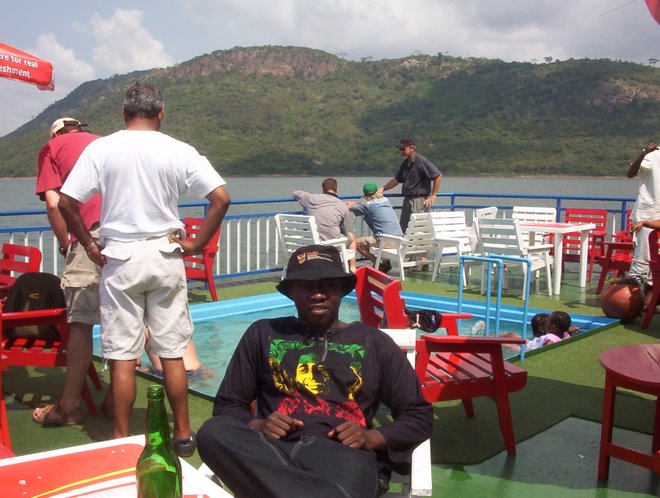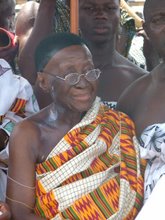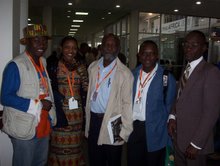UEW produces particle boards from crop residue
THE University of Education Winneba (UEW) has made a technological breakthrough, with the production of particleboards using various crop residues and elephant grass for use in the furniture manufacturing industry.
The Faculty of Technical Education of the University located in Kumasi, in collaboration with the BMK Particle Board in Takoradi, produced the particleboards using residues including corn stalk, sugar cane bagasse and empty fruit bunch of the oil palm.
Over the years in Ghana, agricultural residues such as corn stalk and sugar cane bagasse were usually burnt on farms with their inherent pollution of the environment and the reduction of soil nutrients because of the belief that they have no economic use..
However, the University led by the Dean of the Faculty, Professor Reynolds Okai, with collaboration from BMK Particle Board in Takoradi, researched and uncovered that such agricultural residues could be utilised for the production of particleboards by industry.
The university has subsequently successfully manufactured different particleboard products such as beds, tables, bookshelf, TV stands, lockers and chipboards from the agricultural residue.
This was made known as well as exhibited at the university’s 5th Media Encounter in Kumasi on Wednesday, which was aimed at enhancing the relationship between the university and the media.
The encounter was on the theme, “UEW and National Education Reforms: Inspiring innovation and gender mainstreaming in UEW”.
Making a presentation on the industrial utilisation of the agricultural residue, Prof. Okai said the research was motivated by the increased demand for tropical timber which had resulted in depletion of large areas of forest cover.
He noted that Ghana’s forest cover of over eight million hectares during independence has reduced drastically to 1.4milion hectares and that illegal logging and chainsaw operations, farming activities and over dependence on traditional species including odum and mahogany were accounting for depletion of the forest.
Prof Okai said the ban on chainsaw operations and the promotion of lesser-known species were some of the measures instituted by the government to halt the depletion of the forest as well as the setting up of an annual allowable cut of one million cubic metres of round logs.
He said inspite of these measures, the annual timber requirement was estimated at 4.5million cubic metres of round logs and that there was the need to look for alternative species or materials as substitute for timber production.
He said as part of the research the corn stalk, elephant grass, sugar cane bagasse and empty fruit bunch of the oil palm were extracted from Daboase, a semi-deciduous forest zone in the Western region.
The Dean of Faculty of Education said they were then converted into chips, broken down into small particles, dried and screened and then glued together to form mats.
Prof Okai said the research indicated that the particleboards made from the agric residue were of fine quality than those made from wood and were also sweetable to use as chipboards.
He also added that the boards made from agric residue were also better in terms of water and moisture absorption than that of wood.
Also on gravity, he said the agric residue board have more weight than that of wood.
Prof Okai therefore called on government to help revamp the BMK Particle Board at Takoradi as well as help set up a particleboard production plain in the Brong Ahafo region where corn was grown in abundance.
Again, he called for establishment of a particleboard plant in the Eastern region preferably Nkawkaw and said there was the need for government to assist the private sector to set up particleboard plants.
The Vice Chancellor of the UEW, Prof Akwasi Ameyaw Asabre said the university was also researching into waste plastic and that it was currently doing some work on used water sachet and that findings of the research would be made public when it was completed.
He called for assistance from the government to enable the university to do more than it is now doing.
He announced that beginning next academic year, the university would open an additional campus at Ajumako in the Central region to bring the campuses of the university to four, Winneba, Kumasi, Mampong and Ajumako.
It would be recalled that the UEW had already discovered that the oil palm trunk could be utilised for lumber and furniture production.
Unfortunately, industry was yet to take up the findings for mass production.








































No comments:
Post a Comment